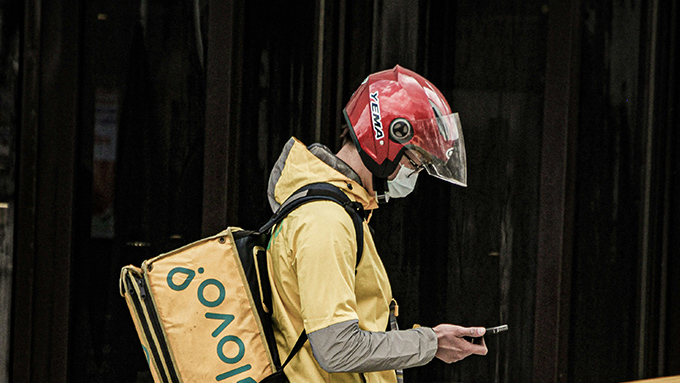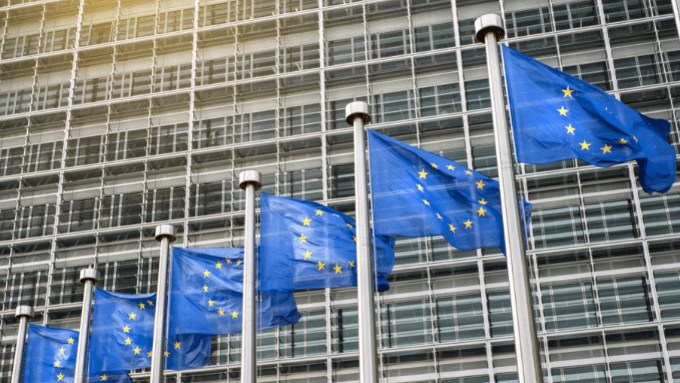Competition Board’s Decision on Hub and Spoke Cartel in the Retail Sector
Introduction
Hub and Spoke cartel is a type of violation that is not clearly defined and regulated under Law No. 4054 on the Protection of Competition (“Law No. 4054”). Decisional practices of foreign competition authorities, particularly the UK Competition and Markets Authority’s decisions (“CMA”), are instructive concerning the elements of a hub and spoke cartel. Hub and spoke cartel, which is considered to be a relatively new type of violation in terms of the Turkish competition law, started to be subject to various decisions of Turkish Competition Board (“Board”), especially in the period following the COVID-19 pandemic. Hub and Spoke cartel attracted widespread public attention as a result of the administrative monetary fine of a total of TRY 2.7 Billion, which was imposed using the Board’s Chain Markets decision[1] in 2021. Therefore, the elements concerning the said violation began to be addressed in detail under Turkish competition law.
In the Board’s decision dated 15.12.2022 and numbered 22-55/863-357 regarding the retail sector, it is evaluated whether various practices of chain markets and suppliers constitute a hub and spoke cartel or resale price maintenance. In light of the Board’s recent decision, this article discusses the evaluations and findings regarding the hub and spoke cartel in the fast-moving consumer goods (“FMCG”) retail market.
Determination of Violation made in the Decision
In the decision, the main allegations related to the hub and spoke cartel involving a large number of suppliers and chain markets operating in the retail sector are summarized as follows:
- Coordination of prices and/or price increases by means of indirect contacts between retailer undertakings through common suppliers.
- Sharing competitively sensitive information such as future prices, price increase dates, seasonal activities, and campaigns through common suppliers.
- Ensuring that the prices are increased to the detriment of consumers by intervening through suppliers, in the prices of retailers that have reduced prices or have not yet increased prices during the period when prices increased across the market.
- Continuous monitoring of compliance with collusion between undertakings through various strategies, such as product-specific price reductions (distortion) in case competitor prices are not increased.
Accordingly, the Board concluded that there has been a violation of Article 4 of Law No. 4054 by means of agreements or concerted practices in the nature of a hub and spoke cartel, with the purpose of fixing the retail prices of a large number of products on the market. The Board decided that the retailers and suppliers which are parties to the investigation are jointly and equally liable for this violation, referred to as a hub and spoke cartel.
Within the scope of the decision, the Board decided to impose administrative fines on 12 supplier undertakings which were parties to the investigation. As for 5 retail undertakings which were also parties to the investigation, despite the fact that the decision contained a violation determination, it was concluded that there was no room for imposing an administrative fine. This is due to the Board’s recent Chain Markets decision where administrative fines were imposed against the same retailer undertakings, as a result of the same practices. Therefore, the general principle of “ne bis in idem” was applied in the case at hand.
The Board’s Evaluations in Terms of Hub and Spoke Cartel
The evaluations and findings in the decision are instructive in terms of the elements of hub and spoke cartel and the standard of proof. Within the scope of its evaluations, the Board drew attention to the atypical nature of hub and spoke cartel and emphasized that it is a relatively new type of violation, which has just begun to be subject to competition law enforcement.
In this context, the Board initially provided explanations regarding the definition of hub and spoke cartel. The Board stated that in a hub and spoke cartel, the information gathered through an undertaking in the position of a hub is distributed to the spokes. Therefore, the cooperation between the undertakings in the downstream or upstream market is ensured. In light of the Board’s evaluations, in a hub and spoke cartel, information is exchanged between undertakings in different two ways and a common understanding is reached through these means. In the first case, a common supplier in the upstream market (hub) is used to reach a common understanding among the retailers in the downstream market (spokes), while in the second case, a common retailer in the downstream market (hub) is used to reach a common understanding among providers operating in the upstream market (spokes). The decisive factor for deciding on the existence of a violation is that the information flow provided through the undertaking which is a party to the vertical relationship ensures that the strategic uncertainties are eliminated or reduced for other undertakings, by means of becoming aware of competitively sensitive information such as the pricing strategies that competitors will follow. This condition is met in case the information that would give rise to a competition law violation is shared directly between competitors at the same level. For instance, future prices and price transition dates are conveyed through common suppliers or buyers. On the other hand, the Board expressly stated that it is a reasonable and legitimate market behavior for undertakings to obtain and monitor the prices of their competitors from publicly available sources and to take positions based on these prices.
The Board further stated that although hub and spoke cartels have vertical characteristics, they are essentially horizontal cooperation agreements. Moreover, the Board emphasized that the authority and court decisions worldwide involving hub and spoke cartel determinations are generally related to the FMCG retailing sector, similar to the case at hand. The Board also drew attention to the increase in the number of such cases in recent years and mentioned that the recent Chain Markets decision is an important milestone in terms of hub and spoke cartels.
The Board clarified that Article 4 of Law No. 4054 covers anti-competitive agreements between competing undertakings operating at the same level (horizontal agreements) as well as agreements between non-competing undertakings, i.e. undertakings at different levels of trade (vertical agreements).
Within the scope of the decision, the Board evaluated the evidence separately for each undertaking. In general, it is observed that the Board evaluated communication evidence and economic evidence together within the scope of its evidence assessment for the hub and spoke cartel. For products that are subject to correspondence between undertakings, the Board examined in detail the price movements within certain date ranges. Therefore, it assessed whether price transitions for certain products occurred on the same or close dates and whether prices were raised to the same level in parallel with e-mail or WhatsApp correspondence between the relevant parties. As a result of this evaluation, the Board reached the conclusion that in case it is demonstrated that the price movements referred to in the correspondence have been realized, the coordination is deemed to have taken place among the undertakings.
As for the standard of proof, the Board stated that it each of the evidence presented about the cartel doesn’t need to meet individually the standard of proof. Nonetheless, the evidence must be clear, convincing and consistent when considered as a whole. In addition, the Board emphasized that it is not sufficient for undertakings to provide a plausible explanation for the various individual pieces of evidence in the evidence set to prove the absence of a violation. The Board also clarified that it expects the conclusion reached on the totality of the evidence to be rebutted. The Board also stated that the reliability of the evidence increases as the level of detail included in the evidence indicating coordination between retail undertakings through suppliers increases.
As a result of its evaluations and findings, the Board decided to impose a total administrative fine of TRY 878 million against 12 supplier undertakings.
Conclusion
It can be observed that the elements set forth by the competition authorities in comparative law for hub and spoke cartel have begun to be addressed by the Turkish Competition Authority, within the scope of various recently published decisions. In particular, the practices of retailer and supplier undertakings operating in the FMCG retailing market are under the scrutiny of the Board. To establish the existence of a hub and spoke cartel, the elements determined through case law must be presented by a sufficient standard of proof. Certainly, the specific conditions of the relevant market and communication should not be disregarded within the scope of the evaluation conducted, as not every exchange of information constitutes a hub and spoke cartel. In the upcoming period, it is expected that hub and spoke cartel will continue to be the focus of the Board’s decisions concerning various sectors.
- The Board’s Chain Markets decision dated 28.10.2021 and numbered 21-53/747-360.
All rights of this article are reserved. This article may not be used, reproduced, copied, published, distributed, or otherwise disseminated without quotation or Erdem & Erdem Law Firm's written consent. Any content created without citing the resource or Erdem & Erdem Law Firm’s written consent is regularly tracked, and legal action will be taken in case of violation.
Other Contents

The U.S. District Court for the District of Columbia (“Court”) issued its memorandum opinion (Memorandum Opinion) on November 18, 2025, in the antitrust case (“Case”) between the Federal Trade Commission (“FTC”) and Meta Platforms Inc. (“Meta”). The FTC alleges that Meta monopolized the market…

No-poach agreements, which have become one of the most prominent concepts in global competition law in recent years, are defined in the Glossary of Competition Terms as “agreements, whether direct or indirect, whereby one undertaking agrees not to make job offers to, or hire, the employees of another...

The Competition Board (“Board”) has broad powers to request information from undertakings. The legal basis for this authority is provided by Article 14 of Law No. 4054 on the Protection of Competition (“Law No. 4054”). Under this provision, the Board may request any information it deems necessary from public...

Competition authorities around the world have increasingly focused on labor market infringements under competition law, issuing new regulations and guidance recently. Notable examples include the U.S. Department of Justice and Federal Trade Commission’s joint guidance, the Japanese Fair Trade Commission’s...

Chapter 8 of the General Data Protection Regulation (“GDPR”) sets out the legal remedies available to data subjects in the event of a breach of their rights under the GDPR. Accordingly, each data subject has a right to lodge a complaint with the supervisory authority of the Member State in which they reside, work...

Mergers and acquisitions play a critical role in shaping the competitive structure of the market. Although such transactions can lead to positive outcomes such as the provision of products and services at lower prices, the development of new products and technologies, and improvements in quality, they may also...

Technology and the opportunities it brings undoubtedly play a key role in strengthening the competitiveness of market players. In this context, pricing algorithms that enable undertakings to monitor publicly available prices and optimize their own pricing strategies have become widely used, especially by digital platforms...

The Regulation on Fines to Apply in Cases of Agreements, Concerted Practices and Decisions Restricting Competition, and Abuse of Dominant Position (“Former Regulation on Fines”), which entered into force upon its publication in the Official Gazette dated February 15, 2009 and numbered 27142, was...

In the past years, the Turkish Competition Board (“Board”) has closely monitored the activities of undertakings operating in the retail sector. As a result of the Board’s record of administrative fines, horizontal type of violations in the retail sector have been highly publicized. Vertical violations such as resale price...

In recent years, numerous automobile manufacturers have announced their goals to reduce carbon emissions, with many brands setting net-zero carbon targets spanning from production processes to the lifecycle of their vehicles. While ongoing debates persist regarding the significantly higher carbon footprint of...

Under Article 15 of Law No. 4054 on the Protection of Competition (“Law No. 4054”), the Competition Board (“Board”) may conduct on-site inspections at the undertakings’ premises when it deems necessary in fulfilling the duties assigned to it. During the on-site inspection, the Board is authorized to examine all...

Agreements and information exchanges between undertakings in labor markets have recently been examined in various preliminary investigations and investigations initiated by the Turkish Competition Authority (“Authority”). Following the investigations in which some undertakings were subject to...

The Turkish Competition Board’s (Board) decision regarding the acquisition of the international road transport business line of Ekol Lojistik AŞ (Ekol) by DFDS A/S (DFDS) has been one of the most prominent transactions on the competition law agenda recently...

The Competition Board (“Board”) has broad powers to request information from undertakings. The Board’s authority to request information arises from Article 14 of the Law No. 4054 on the Protection of Competition (“Law No. 4054”). Under the relevant provision, the Board may request any information it deems...

Doğuş Otomotiv Servis ve Ticaret A.Ş. (Doğuş) applied to the Turkish Competition Authority for an exemption for the practice of recommending basic wages to be applied to sales and after-sales service employees of its authorized dealers and distributors...

Access to Instagram was blocked ex officio by the Information and Communication Technologies Authority (ICTA) as of 2.08.2024. Under Article 8 of Law No. 5651 on the Regulation of Publications on the Internet and Combating Crimes Committed Through These Publications, ICTA can issue an ex officio access...

It is well known that agreements between employer undertakings with regards to their employees, such as wage-fixing and non-poaching agreements, along with competitively sensitive information exchanges have been under the scrutiny of competition authorities all over the world, including the Turkish Competition...

Automotive is one of the sectors in which the world’s most significant investments are made. The Competition Board (“Board”) has been closely interested in the automotive sector over the years and has conducted various examinations and studies in this field...

Competition authorities around the world continue unabated to investigate competition concerns arising from data collection and processing activities of digital platforms and impose severe sanctions as a result...





The startup ecosystem in Turkey has experienced notable growth in recent years. In the last quarter of 2023, 81 startups secured a combined investment of around 60 million dollars. While the number of investments remained consistent when comparing the third quarter periods of 2022-2023, there was a decrease...

The Competition Board ("Board") made an addition to its line of decisions on resale price maintenance with its decision on Sunny Elektronik Sanayi ve Ticaret A.Ş. ("Sunny") . In its decision, the Board thoroughly examined the allegations regarding Sunny's involvement in maintaining resale prices and restricting...

It is observed that the Competition Authority (“Authority”) has recently scrutinized various industries such as fast-moving consumer goods, labor market, pharmaceuticals, and cement. When the reasoned decisions of the Competition Board (“Board”) published in October are examined, it can be seen that the...

Jules Verne says, “Everything on earth has a limited lifespan, nothing that will exist forever can be created by human hands”. Perhaps change is the only constant concept in all our lives. Despite two major world wars and countless periods of crisis, humanity has been undergoing a great change and...

At the meeting of the Fédération Internationale de Football Association (“FIFA”) held on 16 December 2022, the FIFA Council approved the FIFA Football Agents Regulations (“FFAR”). In the FFAR, various amendments have been made, such as the introduction of a maximum service fee limit that football agents are...

Resale Price Maintenance (RPM) is still considered a hardcore restriction under the recently revised Vertical Block Exemption Regulation (VBER), which means that it cannot benefit from a statutory exemption under Article 101(1) TFEU, unlike certain other types of vertical agreements. However, it has been debated...

In competition law, it is important to accurately determine the concept of undertaking, especially in terms of mergers and acquisitions. Therefore, the concept of economic entity aims to reveal the economic units covered by the undertakings. The relationship between the concept of economic entity and family ties comes...

In these days when the Competition Board (“Board”) frequently imposes administrative fines for preventing on-site inspections and both the Competition Authority (“Authority”) and undertakings take legal and technical measures regarding on-site inspections, a striking development has occurred. In its decision...

Online advertising has become an important source for businesses for promoting products and services and meeting consumers, as a result of the rapid development of information technologies and increase in the use of internet. Delivering targeted messages to consumers at the right time through the digital...

Selective distribution systems refer to a type of distribution system in which suppliers commit to selling the contracted goods or services directly or indirectly to distributors selected based on specified criteria, while the distributors commit not to sell the said goods or services to unauthorized...

Fast-moving consumer goods is undoubtedly one of the sectors that the Competition Authority has been working most intensively since the COVID 19 pandemic. Among the most important developments of this period was the Sector Inquiry initiated on Fast Moving Consumer Goods (“FMCG”) Retailing...

In the decision of the Constitutional Court ("Constitutional Court" or "Court") dated 09.11.2022, numbered 2020/67 E. 2022/139 K. (the "Decision"), the annulment of certain articles of the Law Amending the Law on the Protection of Competition No. 4054 ("Law No. 7246") was requested...

In Turkish competition law, certain types of mergers and acquisitions are subject to Turkish Competition Board’s (“Board”) approval in order to gain legal validity. Pursuant to Article 7 of the Law No. 4054 on the Protection of Competition (“Law No. 4054”), the Board is competent to define mergers and acquisitions...

Recently, the Competition Board (the Board) had imposed administrative fines on banks and financial institutions for failing to respond to the request for information within the scope of a preliminary investigation.[i] The request for information that lays the groundwork for the administrative fine imposed by...

Amazon, a world-famous company, is an e-commerce company that operates the world’s largest online shopping platform. In the backstage, Amazon is a data-driven company whose retail decisions are mostly driven by automated systems, fueled by the relevant market data. That being said, Amazon has a dual...

The right to make on-site inspections is one of the Competition Board’s (“Board”) most important tools for revealing whether Law No. 4054 on the Protection of Competition (“Law No. 4054”) has been violated. The effective use of this authority is quite important in terms of obtaining fruitful results from...

“Harese” is an interesting Arabic word. There is a thorn that camels love very much in the desert. The camel eats the thorn with great greed. So much so that, its mouth bleeds as it eats, but it doesn't stop eating. The taste of the thorn is mixed with the salty taste of its own blood. This mixed taste drives the camel...

Turkey’s leading pay television service provider, Krea İçerik Hizmetleri ve Prodüksiyon A.Ş. (“Digiturk”), is frequently the subject of complaints made to the Competition Authority (“Authority”). In fact, the Competition Board (“Board”) issues a new decision about Digiturk almost every year. In these decisions...

The French Competition Authority (Autorité de la Concurrence), within the scope of the competition law proceeding initiated upon the complaint of Criteo SA (“Criteo”), accepted the commitments proposed by Meta Platforms Inc., Meta Platforms Ireland Ltd., and Facebook France...

While the scope of Competition Board’s (“Board”) power to conduct on-site inspections has increased with the introduction of Guidelines on Examination of Digital Data during On-site Inspections (“Guidelines”), nowadays the amount of monetary fines imposed on undertakings continue to...

The hub and spoke cartel, which is a relatively new type of violation in terms of Turkish competition law, is defined as the indirect exchange of information between two independent undertakings which are horizontal competitors on the supplier or retailer level, through another undertaking...

The settlement mechanism has only recently been introduced to Turkish competition law practice. It entered into force with the amendment made to the Law on the Protection of Competition (“Law”) numbered 4054 on 16.06.2020, and has been in effect for less than two years. In this relatively...

Due to their increasing share in the economy and rapid growth rate, e-marketplace platforms have come under the increasing scrutiny of the Turkish Competition Authority (“Authority”) as well as many competition authorities around the world...

Pursuant to the Amendment Communiqué Concerning the Mergers and Acquisitions Requiring the Competition Board’s Approval (“Amending Communiqué”) published in the Official Gazette dated March 4th, 2022 and numbered 31768, certain amendments have been introduced...

The Competition Board (“Board”) has recently published a reasoned decision in which it evaluated BSH Ev Aletleri Sanayi ve Ticaret A.Ş.’s (“BSH”) request for negative clearance or exemption with regard to its practice of prohibiting authorized dealers from making sales through online marketplaces...

Shahmaran, a Mesopotamian myth, is believed to take place in Tarsus. According to the myth, the shah of snakes is the immortal and omniscient "Shahmaran." Shahmaran is described as a beautiful woman living in her cave with her snakes...


During the COVID-19 pandemic, competitive concerns about the pricing behavior of chain markets, manufacturers, and wholesalers engaged in the retail trade of food and cleaning supplies led to an investigation by...

When the past decisions and the recent decisions of the Competition Board (“Board”) are examined, a significant increase can be observed in the number of decisions where the Board found hindrance or obstruction of on-site inspections. This situation shows that...

The European Commission began investigating the collusive behavior of Credit Suisse, UBS, Barclays, RBS, and HSBC in the Foreign Exchange (forex) spot trading market in 2019. With the recent press release dated 02.12.2021, the Commission announced that the case is now closed...


Digitalization, in particular, necessitates the rewriting of competition law rules. Competition law is at the center all questions regarding e-commerce and digital platforms. The aforementioned platforms, which have become prominent due to innovations in...

















































